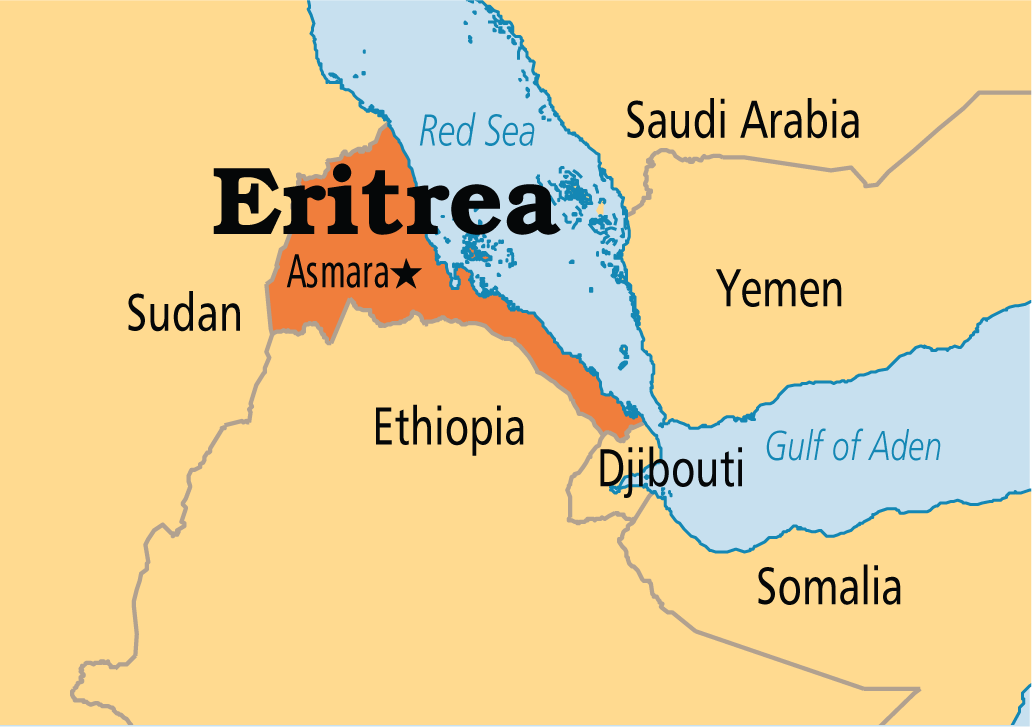Eritrean
Photo credit: www.operationworld.org
Why are individuals fleeing from Eritrea?
After the country’s establishment in 1991, no democratic elections were held and the government remained under the power of only one political party, the People’s Front for Democracy and Justice. Now, there is required indefinite national service with little pay as well as persecution of minority religions, such as the Pentecostal. There are severe consequences for individuals caught trying to cross the border out of Eritrea.
Primary Languages(s) in Eritrea (Statistics from “The World Factbook” on CIA website)
Tigrinya
Arabic
English
Religions in Eritrea (Statistics from globalreligiousfutures.org)
62.9% Christian
36.6% Muslim
<1% Other religions
Common Phrases (Tigrinya)
Source: http://www.omniglot.com/language/phrases/tigrinya.php
Welcome: Merhaba
Hello: Selam
How are you?: Kemey ‘aleka (m); kemey ‘aleki (f)
Response: Ezgher yimesgen
Yes: Ewe
No: Aykonen
Thank you: Yekenyeley
Also – a video of greetings in Tigrinya.
Guidelines For Interacting With Eritrean Refugees
What are some cultural differences?
Physical contact between genders is generally unacceptable.
Direct eye contact is normal between friends and family, but indirect eye contact is normal for interacting with strangers or acquaintances.
Raising eyebrows during conversation means “yes”.
What are some resettlement considerations?
Eritrea does not have a good formal health system, so refugees may be unfamiliar with Western medicine, etc.
Many refugee still have family in Eritrea who are being arrested and persecuted.
Eritrean refugees speak many different languages and thus may not have a shared language as a resettled group.
*This collection of information is neither perfect nor comprehensive. Each culture is unique and cultural norms are diverse even among individuals from the same culture. Additionally, the refugees from the following places are diverse, as is easy to see in the guidelines in this report.

